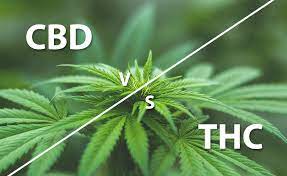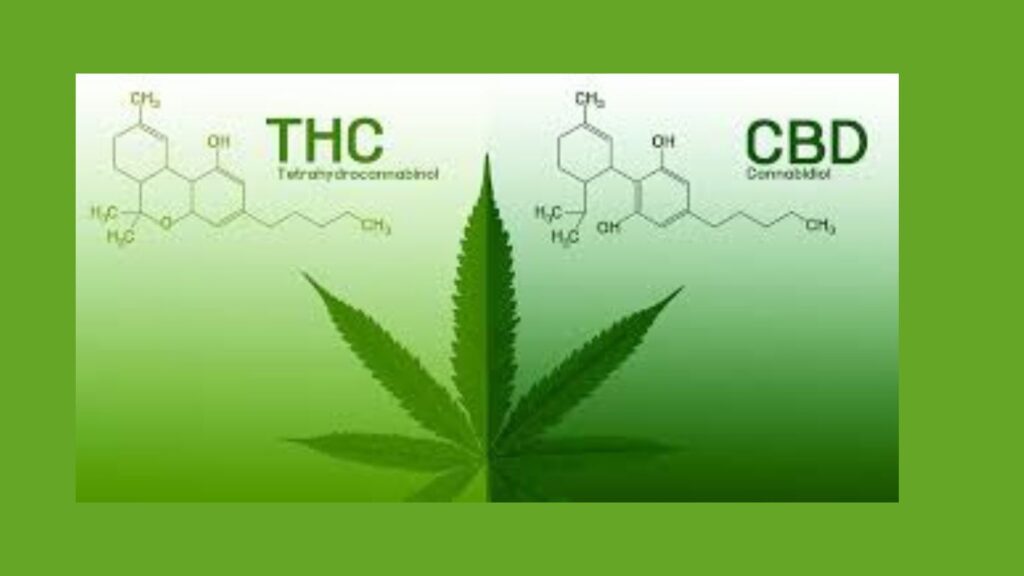In recent years, there has been a surge in interest surrounding CBD and THC, two compounds found in the cannabis plant. Many Canadians are curious about these substances and their potential benefits. In this blog, we’ll break down the differences between CBD and THC and shed light on the benefits of CBD strains available in Canada.
What Are CBD and THC?

- CBD (Cannabidiol): CBD is a non-psychoactive compound found in cannabis. It won’t get you “high.” Instead, it’s known for its potential therapeutic properties. CBD is commonly used for relaxation, stress relief, and managing various health conditions.
- THC (Tetrahydrocannabinol): THC is the psychoactive compound in cannabis responsible for the “high” people associate with marijuana. While it has therapeutic benefits too, it can also cause intoxication.
Key Differences:
- Mind-Altering Effects: CBD doesn’t make you feel “stoned,” while THC does.
- Legality: In Canada, both CBD and THC are legal for medical and recreational use, but they are subject to different regulations.
- Medical Use: CBD is often used to treat anxiety, pain, inflammation, and epilepsy. THC is used for pain relief, nausea, and improving appetite.
Benefits of CBD Strains in Canada:
- Anxiety Relief: CBD is known for its calming effects, making it a popular choice for managing anxiety and stress.
- Pain Management: CBD strains may help alleviate chronic pain and inflammation without the intoxicating effects of THC.
- Epilepsy Treatment: CBD has been approved as a treatment for certain types of epilepsy, such as Dravet syndrome and Lennox-Gastaut syndrome.
- Better Sleep: Some users report improved sleep quality when using CBD strains.
- Non-Intoxicating: CBD strains provide potential health benefits without the “high” associated with THC.
- Legal Access: CBD strains are readily available in Canada, both through government-regulated channels and private retailers.
Benefits of THC Strains in Canada:
Here are the potential benefits of THC strains in Canada in simple points:
- Pain Relief: THC strains can help manage chronic pain conditions.
- Stress and Anxiety Reduction: In moderate amounts, THC can alleviate stress and anxiety.
- Improved Sleep: Some find THC strains helpful for better sleep.
- Appetite Stimulation: THC can stimulate appetite, aiding those with reduced appetite.
- Nausea and Vomiting Relief: Useful for managing nausea, especially in cancer patients.
- Creativity and Euphoria: Induces creativity and a sense of euphoria.
- Muscle Relaxation: Relieves muscle spasms and tension.
- Neurological Disorders: May help with conditions like multiple sclerosis.
- Anti-Inflammatory Effects: Can reduce inflammation.
- Glaucoma Management: Temporarily lowers intraocular pressure.
Always use THC strains responsibly and consult with a healthcare professional, especially if using for medical purposes. Individual responses may vary.
Consumption Methods:
CBD strains in Canada are available in various forms, catering to different preferences and needs:
- CBD Oil/Tinctures: CBD oil is one of the most popular forms of CBD consumption. It’s typically taken sublingually (under the tongue) for fast absorption. Users can also mix it with food or beverages for a more enjoyable experience.
- Edibles: CBD-infused edibles, such as gummies, chocolates, and beverages, provide a tasty way to incorporate CBD into your daily routine. Keep in mind that the onset of effects can be slower compared to sublingual methods.
- Capsules and Pills: These offer a precise and convenient way to take a controlled dose of CBD. They are especially popular among those who prefer a traditional pill format.
- Topicals: CBD-infused creams, lotions, and balms are designed for topical application and can be used to target localized pain or skin issues.
- Vaping: Vaping CBD e-liquids or concentrates allows for rapid absorption through the lungs. However, it’s important to be cautious about the potential risks associated with vaping.
- Smoking: While not as common as other methods, some individuals choose to smoke CBD strains. It offers a quick onset of effects but may not be suitable for everyone due to the inhalation of smoke.
Potential Side Effects:
CBD is generally well-tolerated by most people, and severe side effects are rare. However, it’s essential to be aware of possible side effects, which may include:
- Dry mouth
- Changes in appetite
- Diarrhea
- Dizziness
- Fatigue
It’s worth noting that these side effects are typically mild and transient. Adjusting the dosage or method of consumption can often mitigate them. It’s crucial to consult with a healthcare professional if you experience any concerning side effects.
The Evolving Research Landscape:
As interest in CBD grows, so does the body of research exploring its potential benefits and applications. In Canada, researchers are actively studying CBD’s effects on various health conditions, including:
- Mental Health: Research is ongoing to understand how CBD may help with conditions like anxiety, depression, and post-traumatic stress disorder (PTSD).
- Neurological Disorders: Studies are investigating CBD’s potential in managing neurological conditions such as multiple sclerosis (MS), Parkinson’s disease, and Alzheimer’s disease.
- Cancer: Preliminary research suggests that CBD may have anti-cancer properties and could be a valuable addition to cancer treatment.
- Pain Management: CBD’s effectiveness in pain relief is an area of continued exploration, with a focus on both acute and chronic pain.
- Inflammation: CBD’s anti-inflammatory properties make it a subject of interest for conditions involving inflammation, such as arthritis.
As more research becomes available, Canadians can expect a deeper understanding of CBD’s potential benefits and its role in modern healthcare.
Conclusion:
Understanding the differences between CBD and THC is essential when considering their use. While both have their benefits, CBD strains, in particular, offer non-intoxicating relief from various health issues, making them an attractive option for many Canadians seeking natural wellness solutions. Always consult with a healthcare professional before starting any new wellness regimen involving CBD or THC.

